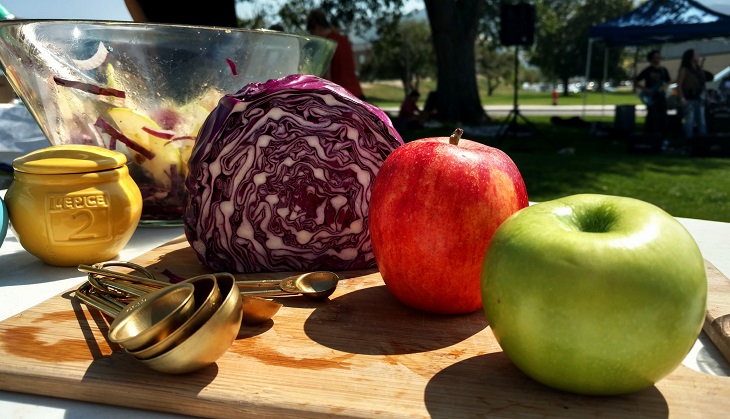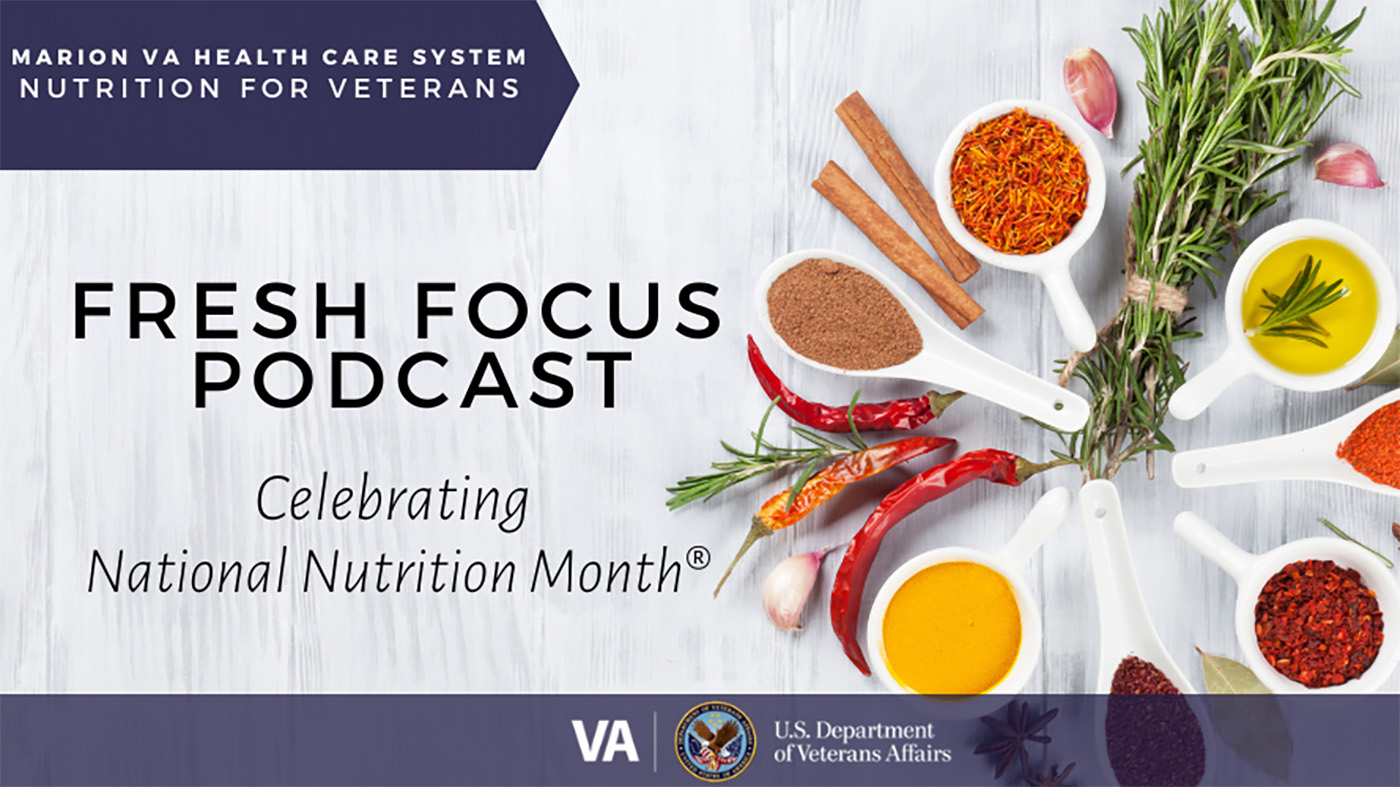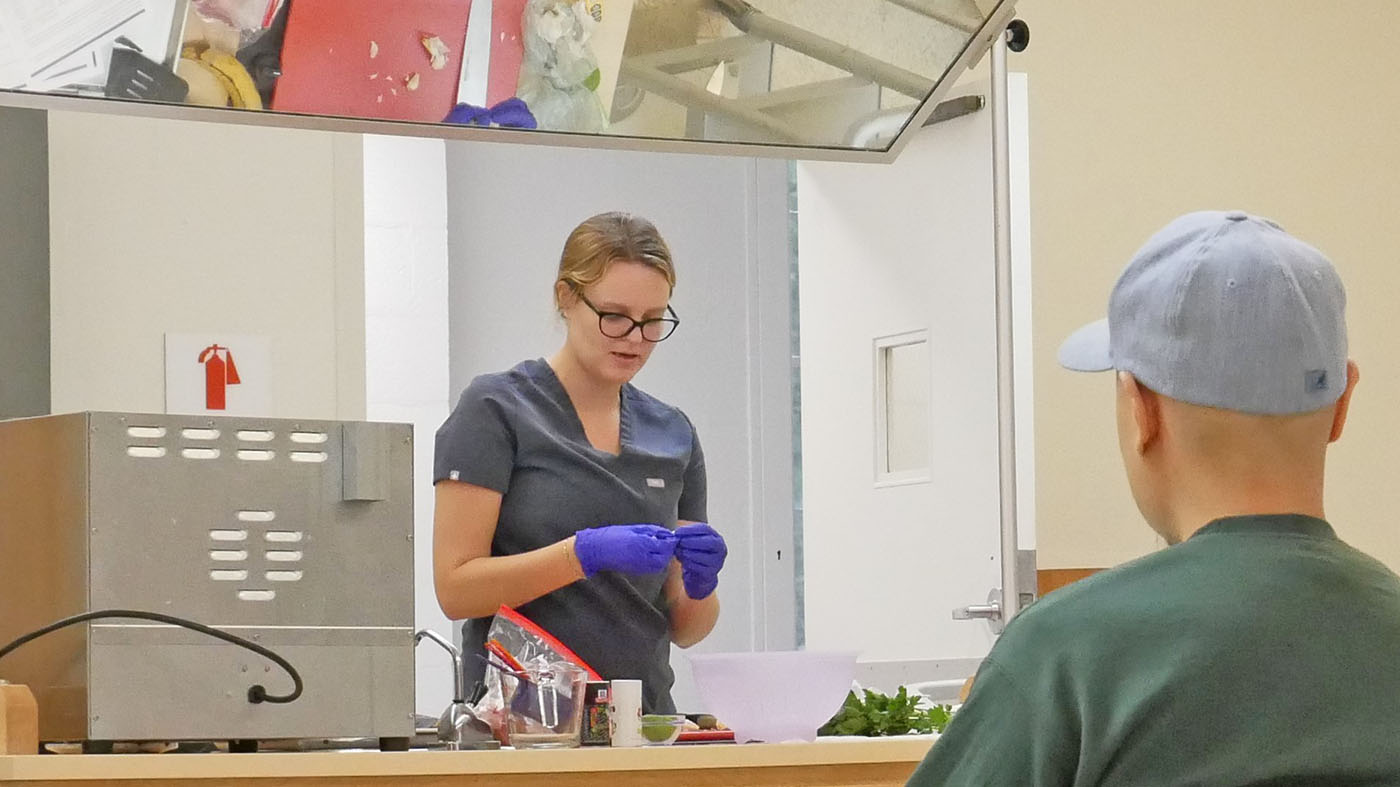It’s that time of year when temperatures cool and there is a crispness in the air. As the seasons change, so does the fresh produce selection. Summer has an abundance of fresh produce and there’s nothing quite like a ripe tomato in a salad or on a grilled burger. As a VA registered dietitian, I work with Veterans during all seasons and often hear how hard it is to find fresh produce year-round. As anyone with a garden knows, tomatoes in February are not as tasty as in August. To avoid this, you might consider seasonal eating.
What are benefits of eating seasonally? Above all, taste. Fresh foods that have been recently harvested and not stored taste the best and retain the most nutrients, so eating seasonally gives you the most “bang for your buck.” If you eat produce out of season, like strawberries in winter, frozen options are great alternatives. They are picked at the height of freshness and promptly packaged for freezing, retaining their nutritional value.
Each season has its own unique fruits and vegetables. For example, berries are abundant in the summer, while citrus fruits surprisingly grow best in the winter (warm climates, of course). The USDA has a Seasonal Produce Guide that shows which foods are growing during each season. You can also search locally here, looking up your state to find out what is available.
Farmers markets are great environments to explore the seasonality of food in your region. Check out the Local Harvest website or the USDA directory to find a nearby market. For those who use the SNAP program, some states offer a program called Double Up Food Bucks that allows for double the produce at the same price. To see if your state participates, check here. Shopping farmers markets also helps support local farmers, keeps tax dollars in the community, and has a positive environmental impact. Not able to make it to a market? Community Supported Agriculture (CSA) programs may be an alternative. Here at the Salt Lake City VA we have a weekly farmers market and a CSA during the summer. Contact your local dietitian to see if this is available at your VA or in your community.
As we move into the fall season, two of my personal favorites, apples and squash, will be in season and readily available to enjoy. Enjoy the season and get some fresh air by visiting an apple orchard or pumpkin patch! Try something new with the apples you pick, such as canning homemade applesauce to enjoy year-round or add fresh cut apples to salads. Pumpkins are not just for carving. Try this soup recipe that features pumpkin (consider adding some pureed apple for a touch of sweetness). The USDA Seasonal Produce Guide linked above has recipes, nutrition benefits, and how to select/store each type of produce.
Above all, food should taste good and nourish the body at the same time. Seasonal eating can help with both. Your local dietitian is a great resource to help guide you in learning to eat seasonally. For more information on this or any other nutrition-related topic, contact your local VA and ask to speak with a dietitian.

Topics in this story
More Stories
As a Veteran, you may be at an increased risk for developing an eating disorder
VA dietitians with the Fresh Focus Podcast encourage us to celebrate the theme Beyond the Table
A cooking class help Veterans maintain lifelong, permanent healthy lifestyle changes. Encouraging better nutrition and less processed food.







Red apples are my all time favorite and I like to make juice and share it with my kids. Try to choose the fresh ones by removing peels that prevent us from harmful pesticides.